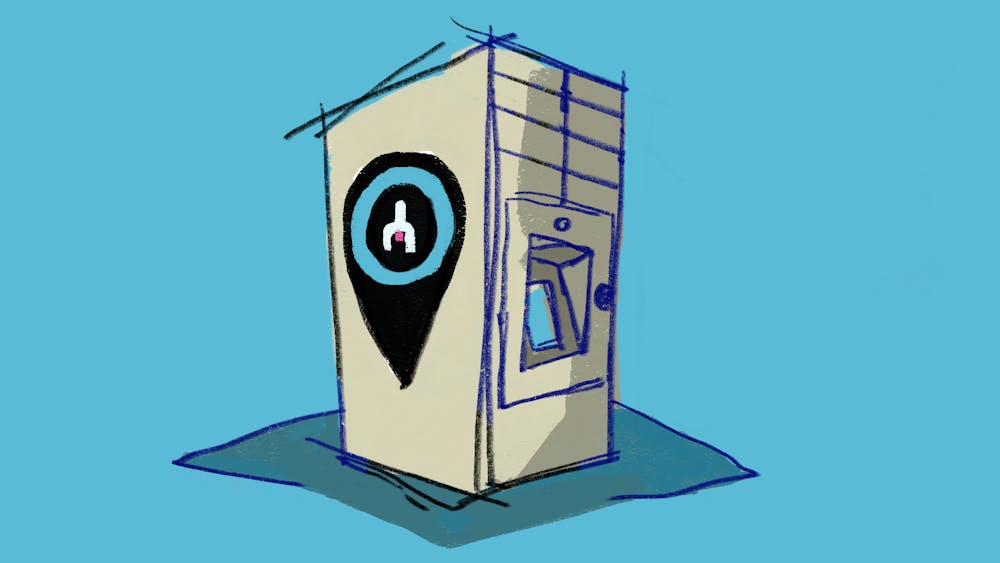One line in a $30 million federal aid package for addiction treatment centers has wreaked havoc on conservative mass media. The outrage stems from a Fox News article that alleges the $30 million package approved by the Biden administration is funding distributions of glass pipes used to smoke crack cocaine. In reality, the package includes funding for rehabilitation centers and various treatment programs across the country. The specific line the article refers to includes funding for safe smoking kits that minimize the risk of disease transmission for drug users, which often contain sterile drug paraphernalia like glass pipes.
This uptick in media attention has refocused the country’s long–standing debate over drug use and substance abuse treatment, a debate that's been especially relevant in Philadelphia.
Philadelphia has been dealing with a drug addiction crisis for decades, compounded by the rise of the national opioid epidemic. In 2016, Philadelphia had the second highest overdose rate in the country, mostly caused by cases of opioid abuse. In response to growing complaints regarding public safety and a lack of drug treatment resources, the city has responded with novel approaches to curb the addiction crisis.
In February of this year, Philadelphia health officials announced a new pilot program to install public vending machines that would dispense naloxone, a lifesaving medication that can reverse the effects of an overdose, for free. The program is known as Narcan Near Me, named after the brand name of the generic drug naloxone. The machine—the first of its kind in the United States—is located in Lucien Blackwell Library, a public library in West Philadelphia.
The city is also experimenting with the innovative approach of Supervised Injection Sites (SIS). These sites offer drug users a safe space to administer narcotics in the presence of medical professionals using sterile equipment, aiming to prevent the spread of diseases like HIV and avoid lethal drug doses. Philly organizations have been leading the charge to pilot an SIS facility in the city for some time, but have faced significant pushback from city residents and officials. In 2021, a court ruled against the opening of an SIS facility in Philadelphia, claiming the potential benefits of the facility did not give it the right to administer illegal substances as defined by federal law.
As the city grows desperate and looks for solutions to a devastating crisis, individuals like Chekesha Ellis are using the power of their personal experiences to help others who also struggle with addiction.
Ellis, a Philadelphia social worker, was injured on the job after falling down some stairs. She was subsequently diagnosed with a torn meniscus, an injury that would require surgery. To deal with the aftermath, Ellis was prescribed Lorcet, an opioid drug that is known to be highly addictive. At 27 years old, Ellis developed an addiction to her prescription medication.
After her original prescription expired, Ellis searched for new doctors to get prescriptions. If a pharmacy denied her, she tried another. The addiction grew to be a central part of her daily routine until it became impossible to maintain a functional lifestyle. Following a few near–death encounters, Ellis committed to detox for good, nine years after her original prescription had been filled.
“I had suffered silently for almost a decade. So I realized when I got clean, I had to do something to reinforce the voices of people in similar situations,” Ellis says. Since entering long–term recovery, she has been published a book detailing her experiences, and appeared on numerous television programs and podcasts to share how difficult it was to seek help and admit she had developed an addiction. She also gives her time to several substance abuse organizations like Mobilize Recovery, which educates people on drug policy and supports recovering addicts. Not long after her recovery started, Ellis started her own organization, Chase No More, which connects those struggling with addiction to treatment options and resources.
Despite having the same goal as the city—to reduce drug overdoses and support those in recovery—Ellis doesn’t always see eye to eye with Philly officials. She believes the solutions should center on kindness and patience, and she particularly takes issue with the recently established Narcan vending machines. “Some people don’t read directions when they warm up frozen pizza,” she says, “How do we expect them to read and understand the directions for lifesaving medicine?” While she isn't completely against the machines, she'd like to see a more direct, human–centered approach. This could look like conducting door–to–door outreach in the city to educate people on how to administer Narcan and recognize the signs of addiction, treating those struggling with substance abuse and their families with time and patience, and making sure that people seeking recovery have access to addiction treatment. At its core, a human–centered approach for Ellis means providing communities with a friendly face to go to when they are struggling or know someone who is.
Ellis herself sets up tables at grocery stores across Philadelphia and offers free Narcan to anyone who needs it with an explanation on how and when to use it. To date, she has saved over 100 lives with these Narcan giveaways. For many residents, there can be serious mistrust of medical and government institutions, stemming from a history of abuse and violence toward Black communities by the American medical field. With a familiar face, Ellis hopes to bridge the gap between medicine and community to save lives.
Drug addiction is deeply stigmatized in American society. When the media runs headlines disparaging harm reduction measures and potential safe injection sites, the coverage is emblematic of how society devalues the lives of drug users and those facing addiction. If Philadelphia wants to end the addiction crisis, it will take more than throwing money at the problem. The city’s most powerful resources are people like Ellis, who have overcome their own addiction and work to help others to do the same, utilizing the power of peer support, community knowledge, and mutual networks that the city has to offer.







